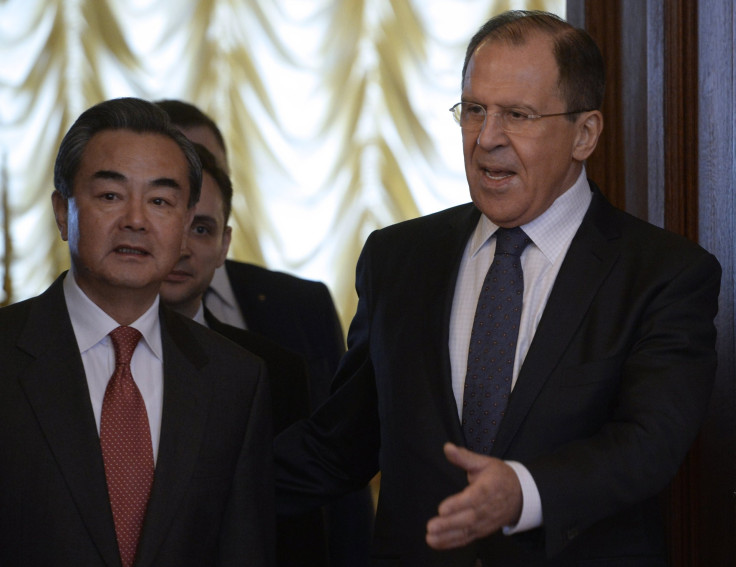Russia, China Urge North Korea To Resume International Nuclear Talks But ‘Stand Firmly’ Against US THAAD Deployment

Russia and China urged North Korea on Friday to resume international talks on its nuclear program and abide by a United Nations Security Council resolution that bars the country’s missile tests, Reuters reported, citing a joint call by both the countries’ foreign ministers. The calls from Russia and China, the strongest supporters of the Kim Jong Un-led regime, come after the country test-fired several missiles over the past few weeks and also conducted a rocket launch.
“We expect North Korea to make reasonable conclusions and listen to the demands of the United Nations Security Council, and return, after all, to the negotiation table within the framework of the joint declaration of the six-party participants made on September 19, 2005,” Russian foreign minister Sergei Lavrov said Friday, according to Russia Today.
Lavrov and his Chinese counterpart Wang Yi also expressed concerns over the deployment of Terminal High Altitude Area Defense (THAAD) by the U.S. to the region, following Pyongyang’s rocket launch last month. South Korea and the U.S., which are conducting their largest ever annual military exercise, discussed the deployment of THAAD to the region as a response to increasing North Korean provocations. The Chinese official called for a complete stop to development of nuclear weapons in the reclusive East Asian country but said that tensions in the region should not be raised.
“We stand firmly against the deployment of the [American] THAAD missile defense system to South Korea under the pretext of the nuclear problem of the Korean Peninsula,” Wang said, according to Russia Today, adding: “We believe this to be directly damaging to Russian and Chinese strategic [national] security.”
The THAAD missile system can shoot down short-, medium- and immediate-range ballistic missiles, according to Sputnik News.
Lavrov said, according to Russia Today: “We believe it to be essential not to shelter behind the excuse that this [deployment] is taking place because of the North Korean reckless ventures,” adding that the deployment exceeds “all imaginable” threats.
“We are going to expose the absolutely invalid nature of such plans, which undermine global [military] parity and strategic stability, we are going to ask our American partners for an honest and objective discussion,” he said, adding: “There is no excuse for such dialog [from the US].”
The comments by the two officials were made during a joint news conference in Moscow.
Lavrov also said, according to Russia Today, that Moscow and Beijing believe strongly that measures should be taken to prevent North Korea from developing more nuclear weapons, and reiterated the importance of the March 2 resolution by the U.N. Security Council. However, he added that it does not allow people “carte blanche to conduct cut-throat policies against North Korea, and leaves the door open to talks.”
Although North Korea had claimed that the rocket launch in February was for scientific and peaceful purposes, the U.S., South Korea and other Western countries consider it a cover for testing a long range missile that could be used to fire a nuclear warhead. Since then, Kim has also announced more missile tests and called for increasing the country’s nuclear capabilities, increasing concerns among the international community.
© Copyright IBTimes 2024. All rights reserved.












